All photos by Benjamin Dangl
Thousands of people marched in El Alto, Bolivia on Friday, October 17th to demand justice for the 2003 massacre of over 60 people during the country’s Gas War under the Gonzalo Sanchez de Lozada (Goni) administration. Sanchez de Lozada is currently living freely in the US, and marchers demanded he and others in his government be brought to Bolivia to be tried for ordering the violence. October marks the anniversary of that assault on the city, and people mobilized on Friday to remember and to demand justice.
“Today we’re marching to remember on the 11th anniversary of the Gas War, which was aimed at getting rid of the neoliberal government of Gonzalo Sanchez de Lozada,” El Alto neighborhood council member Daniel Cama said while marching down the streets of the city. “We demand justice, and we demand the extradition of Gonzalo Sanchez de Lozada and [former Defense Minister] Carlos Sanchez de Berzain, because they were the ones that led the massacre against the people of El Alto. This violence left many widows, orphans and injured people that are still demanding justice. Today we are marching to celebrate and remember the dead who fought for our natural resources.”
Bolivia’s Gas War is largely credited for ushering in a period of progressive change marked by policies led by President Evo Morales, who was re-elected on October 12th for a third term in office. The “Martyrs of the Gas War” are often recalled as the protagonists that led to the nationalization of sectors of Bolivia’s gas industry, a move which has generated funding for many popular social programs the Morales’ administration has developed to alleviate poverty. (For more information, see this article on the ten year anniversary of the Gas War and this article on the case against Goni.)
On Friday, thousands of El Alto residents marched from different points in the city, converging for a rally in the city center, where social movement leaders and victims of the Gas War spoke to a large crowd. Cheers regularly broke out, including the angry cry, “We Want Goni’s Head!” Many activists in the Gas War itself were present, such as the prominent participation by the city’s Fejuve neighborhood organizations. In a march meant to remember those days of repression and struggle, many veterans of the conflict marched down the same streets, and under the same bridges, where the army led their attack.
There was a notable absence of politicians at the day’s events, something many speakers at the rally commented on. Various marchers explained that the Morales government was moving forward with nationalization plans and progressive policies fought for in the streets of the Gas War. However, activists also complained that the Morales administration has not supported the working class city of El Alto with sufficient public projects and infrastructure.
“We’re marching for those brothers and sisters who died or were injured in the Gas War,” explained El Alto resident Genoveve Rodriguez. “As time has passed not even the government remembers this conflict, and they haven’t created enough public projects to help out the city of El Alto.”
The following photos are of the October 17th march, including the vast participation of the neighborhood councils and family members of Gas War victims, as well as the rally which ended the day’s mobilization with speeches and music.
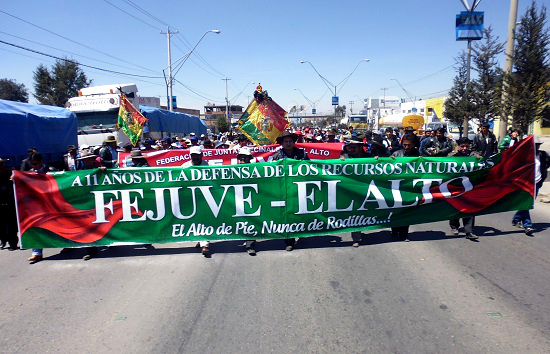
El Alto’s Fejuve neighborhood organizations, key participants in the Gas War, led the march.
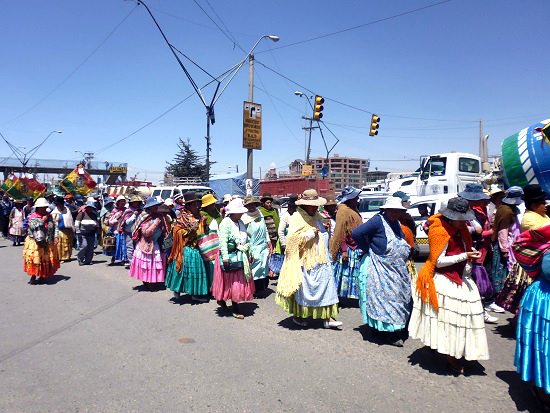
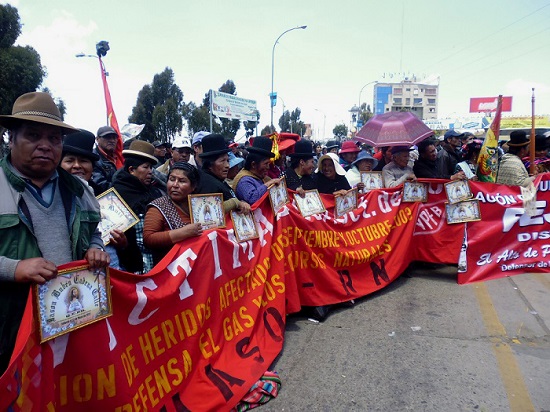
Family members of Gas War victims rallied for justice in El Alto.
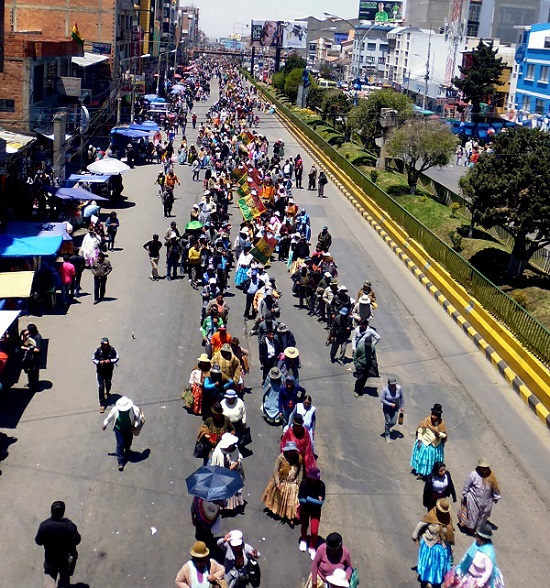
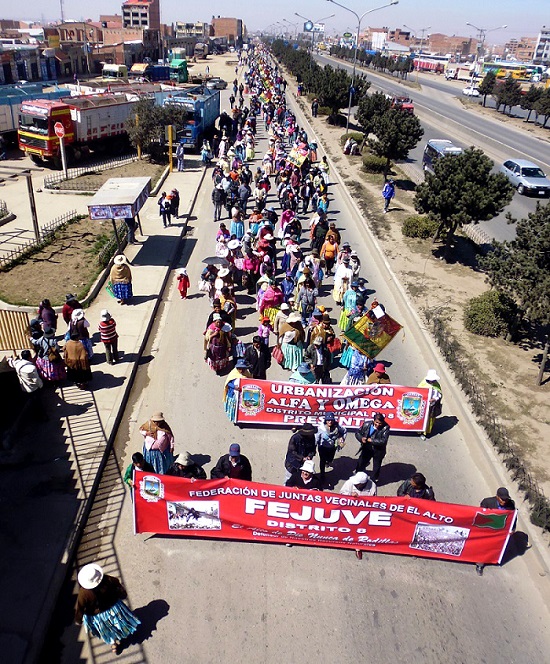
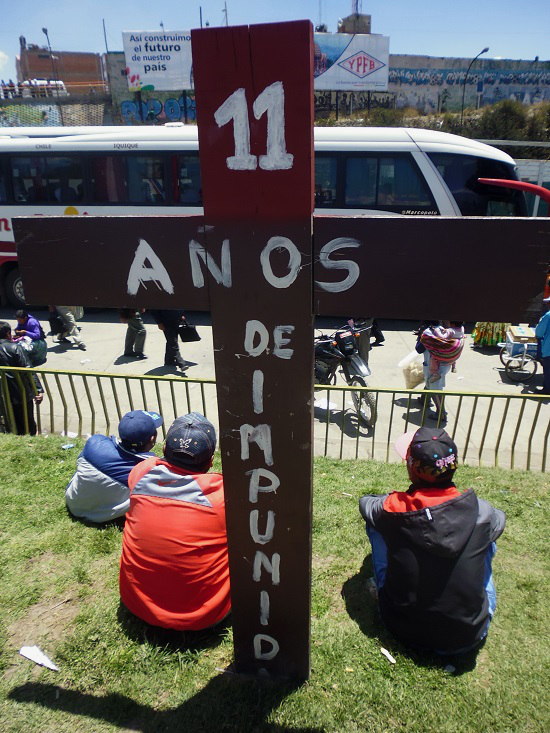
A cross in downtown El Alto reads “11 Years of Impunity.”
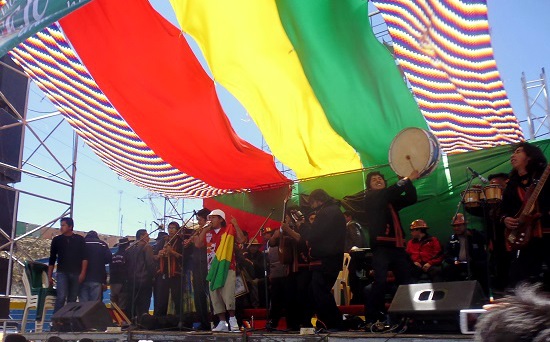
A Bolivian hip-hop group was among many bands performing at the rally following the march.
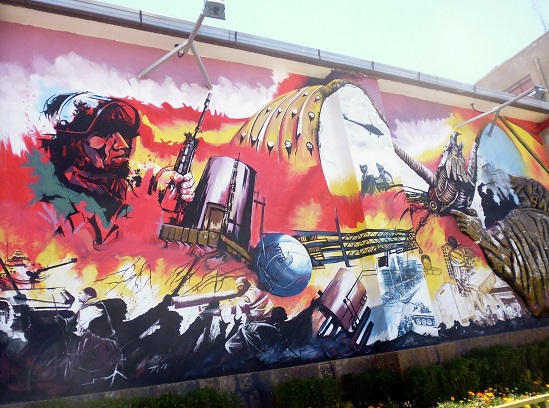
A commemorative mural in El Alto depicting the Gas War.
***
Benjamin Dangl has worked as a journalist throughout Latin America, covering social movements and politics in the region for over a decade. He is the author of the books Dancing with Dynamite: Social Movements and States in Latin America, and The Price of Fire: Resource Wars and Social Movements in Bolivia. Dangl is currently a doctoral candidate in Latin American History at McGill University, and edits UpsideDownWorld.org, a website on activism and politics in Latin America, and TowardFreedom.com, a progressive perspective on world events. Twitter: https://twitter.com/bendangl Email: BenDangl(at)gmail(dot)com
